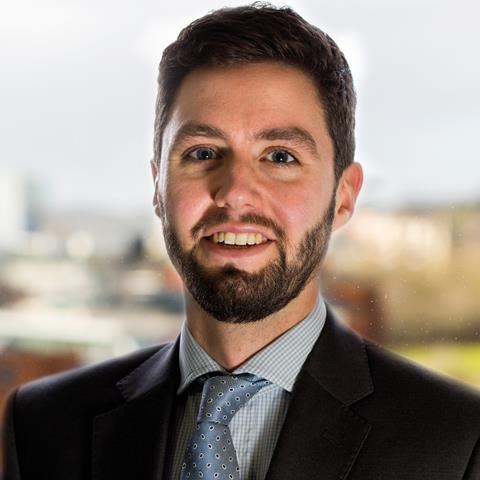Who? Gus Silverman, associate solicitor, public law and human rights, Irwin Mitchell.

Why is he in the news? Represented Robert and Margaret Abrahart in a legal challenge against the University of Bristol after their daughter Natasha, who had chronic social anxiety disorder, took her own life on the day of an assessed presentation. His Honour Judge Alex Ralton ruled that there was direct discrimination and the university did not justify the lack of adjustments, but he was not satisfied that a duty of care arose in negligence. The university was ordered to pay damages of £50,518.
Thoughts on the case: ‘As far as we are aware this is the first time a university has been held liable for the death of a student by way of disability discrimination. There has been much focus on the need to invest in student mental health services. That’s important but it’s not what this case was about principally. Natasha’s mental health deteriorated because of the way she was assessed. The university could have made reasonable adjustments to those assessments without needing additional resources. The problem was that its system for making adjustments expected Natasha to repeatedly disclose highly personal information to different people in different departments, when her disorder made this prohibitively difficult for her. This judgment should be a wake-up call.’
The University of Bristol said: ‘Given the impact this decision could have on how all higher education providers support their students, we are reviewing the decision carefully, including whether to appeal.’
Dealing with the media: ‘Natasha’s parents brought this case to effect change at the university and the higher education sector generally. That meant not only pushing for the right result in the civil action and the inquest which preceded it, but also working proactively with journalists to ensure the public understood what had happened to Natasha. They gave a number of highly effective interviews over the years and appreciated the fact that so many journalists reported Natasha’s story sensitively and kept the case in the public eye.’
Why become a lawyer? ‘I wanted a practical way to help people facing injustice.’
Career high: ‘This case. It has been a long road for Natasha’s family and they have shown such perseverance, courage and dignity. Helping them see their concerns vindicated by the court has been a privilege.’
Career low: ‘When we turn away a potential client with a meritorious case because of the broken system for funding civil liberties cases.’































No comments yet